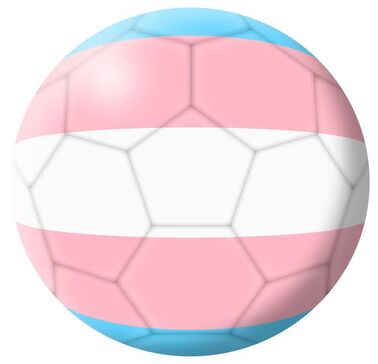We’ve come to expect this from corporations, but politicians and pundits are equally adept at this tactic, and the repercussions are far more serious than a purple polka-dot dress shirt. Demand engineered in politics often casts a critical light on people who simply want the rights and privileges afforded everyone else. Take same-sex marriage. This is a basic civil right that was unavailable to millions of people. Yet rather than focus on the actual issue, early detractors worried it would erode the sanctity of traditional marriage, shining the spotlight on what might be taken away from one group rather than what might be finally offered another.
The LGBTQ+ community must often fight for what others take for granted, and the latest example involves athletics. Several states have put forth bills banning transgender athletes from sports, including Iowa, Alaska, Tennessee, Florida. The debate ranges from middle school to high school to college, and even the Olympics. The nutshell argument is that transgender students should not be allowed to compete in female sports because they are bigger and stronger than their cisgender counterparts. (Note: gender is a dynamic and evolving social construct distinct from biological sex. For more, read the WHO’s overview). Proponents of this argument say it creates an uneven playing field, putting cisgender athletes at a disadvantage. These bills will “ensure fair competition.” However, this argument is myopic, disproved by the data, and has unintended negative effects (e.g., ‘bigger’ or ‘stronger’ cisgender girls and women could be required to undergo an invasive exam to ‘prove’ their gender). Most importantly, like arguments against same-sex marriage, the rhetoric focuses on the statistically insignificant negative consequence for everyone else instead of the known benefit for the vulnerable population in question. In short, we are glossing over the very issue that should be receiving attention: the transgender athletes. Why? As usual, the louder voice wins, and a chorus of improbable “what if” scenarios will usually drown out reasoned, considerate logic. Like many LGBTQ+ issues, the conversation is framed as what society should ‘allow them to have’—as if it’s their right to bestow—instead of correcting a societal inequity. Fear is an easy demand to engineer because it is quickly embraced. Indeed, this may be a ‘wedge issue’ of the 2022 elections as people fear transgenderism will be ‘injected’ into school curriculum much like CRT. But the fact is that LGBTQ+ youth are disproportionately more likely to battle depression, anxiety, and bullying, and this legislation exacerbates the problem. A gender diverse athlete simply wants to belong—somewhere—and if we can engineer fear, we can surely engineer empathy. Our collective priority should be that every person feels welcomed, accepted, and included; that every child gets the opportunity to compete, to experience the comradery of sports, to be part of a team. When that box is checked, we’ll tackle the what ifs.
1 Comment
|
AuthorColin Gabler is a writer at heart. Archives
May 2024
Categories |

 RSS Feed
RSS Feed